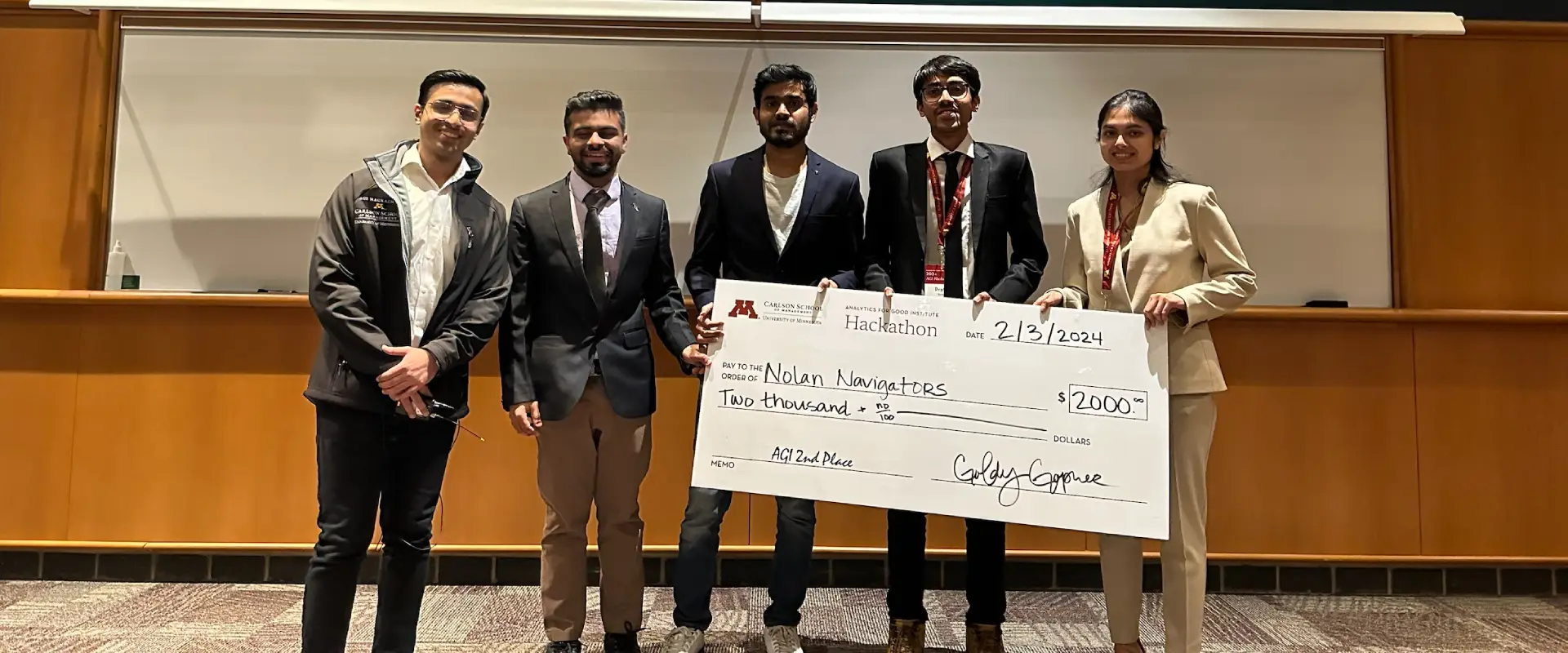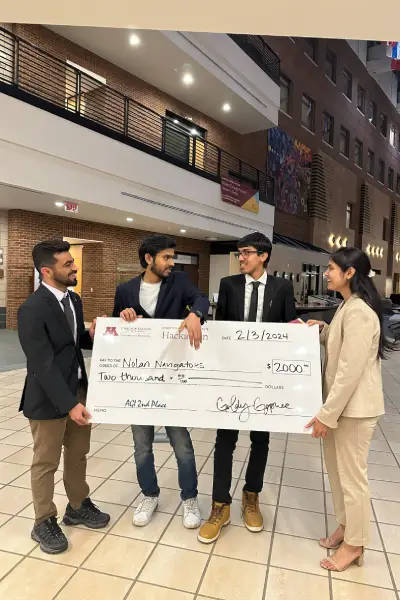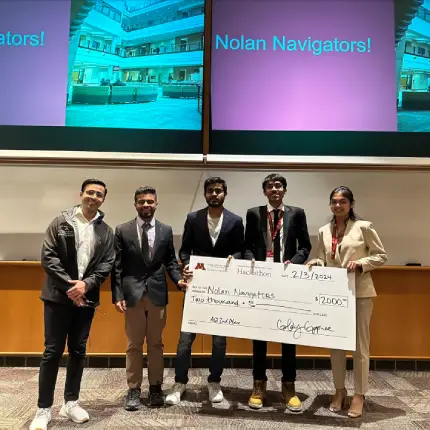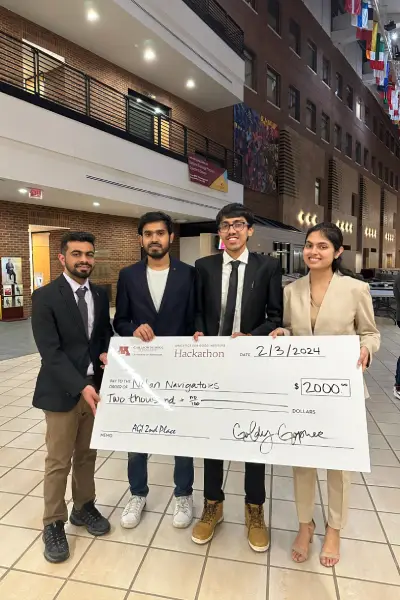
Published on 03-28-2024
A team of students from the MS in Business Analytics and Information Management (MSBAIM) program at the Mitchell E. Daniels, Jr. School of Business recently won second place and $2,000 in prize money at the Analytics for Good Hackathon at the University of Minnesota’s Carlson School of Management on February 2-3, 2024.
This high-energy event, which was open to undergraduate and graduate students from U.S.-based colleges and universities, brought students together to help a mission-driven community organization. Participating teams had two days to crunch the data and devise a solution to the partner organization's business problem.

The Daniels School team, dubbed the “Nolan Navigators,” was comprised of Pratik Borkar, Priyam Sarkar, Samridhi Vats, and Zeeshan Gilani.
“While the MSBAIM faculty excels in delivering the academic content, students often find that their learning is enhanced when they can apply their knowledge to real-world problems,” Vats says. “The analytics challenge hosted by Carlson provided such an opportunity. The problem statement struck an ideal balance between a business case and data science application, resonating strongly with the concepts taught in our classrooms.
“Participating in the challenge underscored an important lesson: the effectiveness of data science is not merely in deploying complex models, but in understanding the specific domain of the problem first. It required us to not just solve the mathematical problem, but to also do that pragmatically.”
The challenge involved a massive dataset of 6.3 million IT jobs, demanding not just data engineering acumen, but also analytical prowess to address the intricate problem statement. Moreover, the task required students to present their findings in a manner that was both logical and accessible, using skills from data engineering, business statistics, predictive modelling, data visualization, data analysis, and insights generation to create a winning solution.
“To thoroughly comprehend the business issue, it was imperative to seek additional information beyond the initial problem statement,” Vats says. “This supplementary information was crucial in gaining a holistic understanding of the business context. Upon achieving a comprehensive grasp of the business challenge, our subsequent endeavor involved devising an analytical framework that not only elucidated the correlations within the data but also established causality among the variables.”
To achieve this, the team conducted a cost-benefit analysis for all pertinent factors, coupled with the development of a regression model. “Despite this methodology being somewhat unconventional, it proved to be highly effective, enabling us to delineate causality among various factors critical to decision-making,” Vats says.

Taking part in the competition also presented the team with financial challenges, primarily the $200 travel fees.
“Despite this setback, our determination to participate and learn remained undiminished,” Vats says. “To find a solution, we reached out to Program Manager Will Robbins, explaining our situation and inquiring whether Purdue could possibly assist with our travel expenses. In a remarkable display of support, Robbins and the Purdue MSBAIM program responded by generously providing our team with a $500 grant to cover these costs.”
Upon arriving at the competition, the team felt confident in their ability to stand out. “There’s no denying that the courses in the MSBAIM program have equipped every single student with the technical tools required to play with data,” Vats says. “However, what sets this program apart is the option to choose electives. This led to a team that had diverse set of skills, facilitating efficient task distribution.”

Another key feature of the program that led to success is the requirement for students to take certain electives focused on business. “While mastering the technical side is important, it’s the understanding of how it applies in a business context that truly makes the knowledge useful,” Vats says. “The use of case studies in these business electives brings to light actual business situations, prompting us to consider possible improvements. Essentially, these courses train students to instinctively view challenges through a business lens.”
Throughout the competition, the team kept its focus on the challenge at hand. “Throughout the entire 24-hour challenge, as we delved into intensive data analysis and machine learning tasks, we were constantly bombarded with numbers,” Vats says. “Yet not for a moment did we lose sight of the ultimate goal — understanding how these figures could contribute to solving our problem. This mindset, this way of thinking, is a direct result of what we've learned in the MSBAIM program.”
If you would like to receive more information about pursuing a business master’s at the Mitch Daniels School of Business, please fill out the form and a program specialist will be in touch!